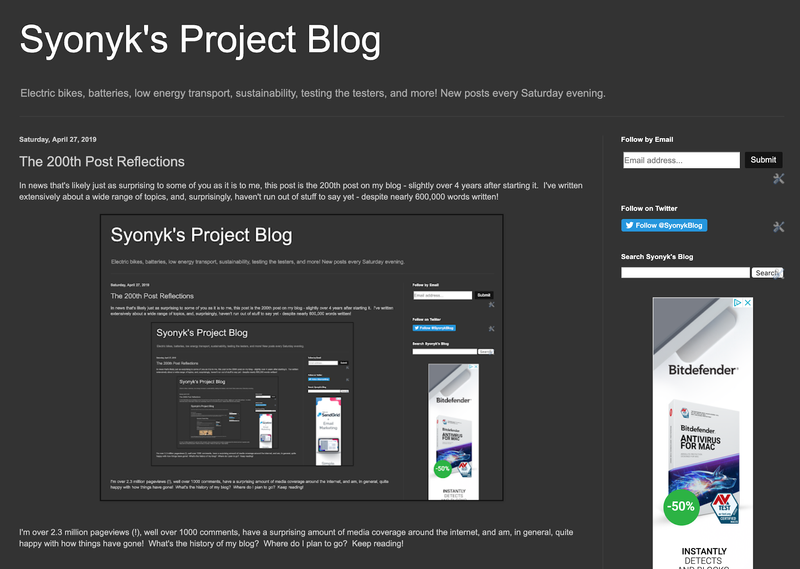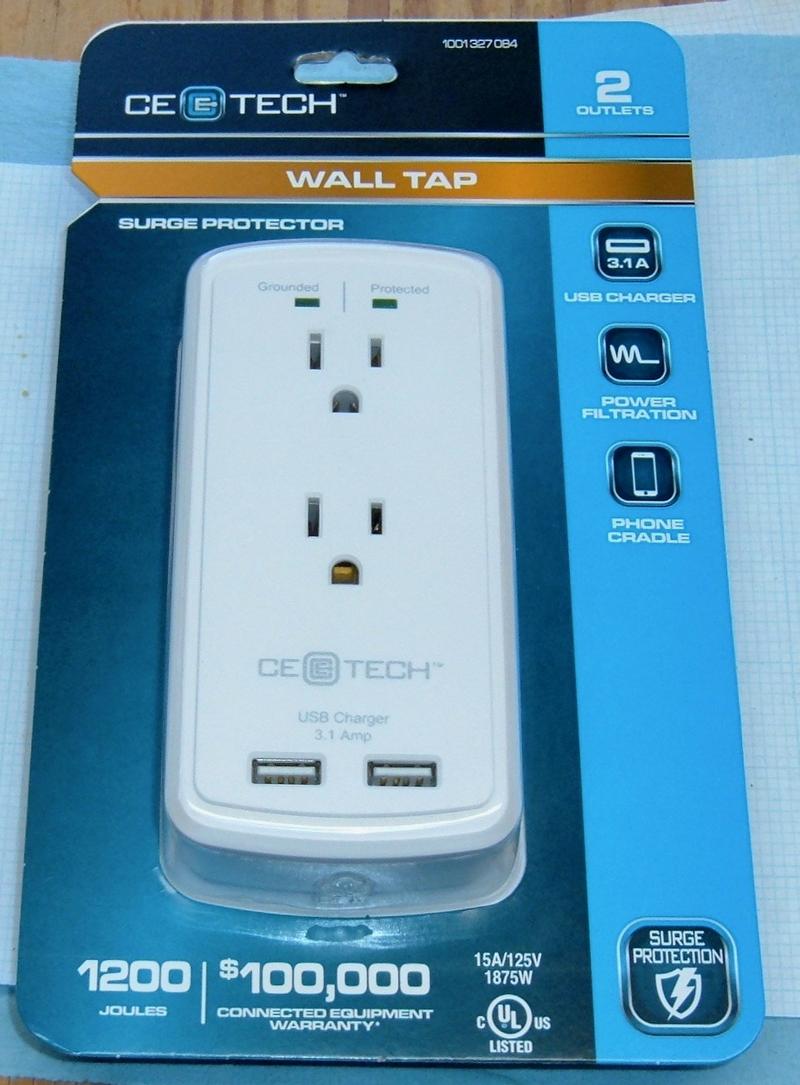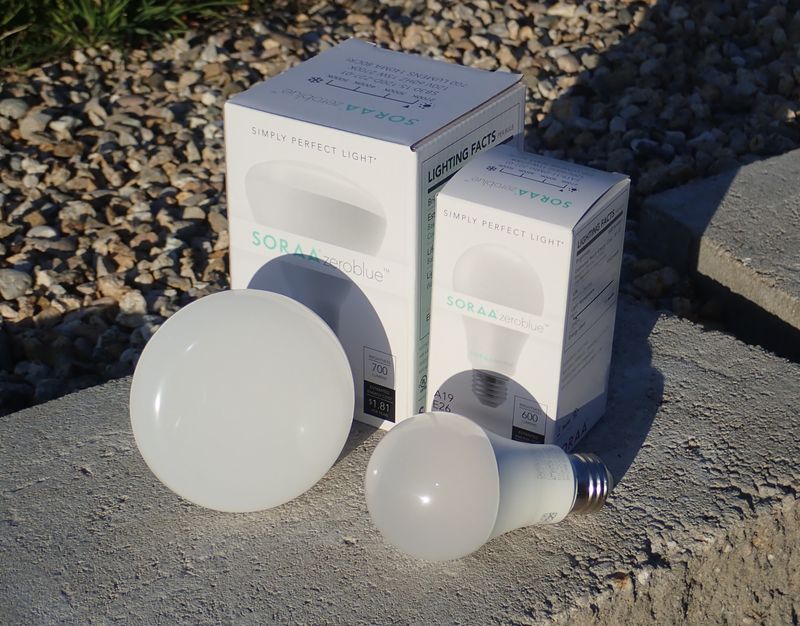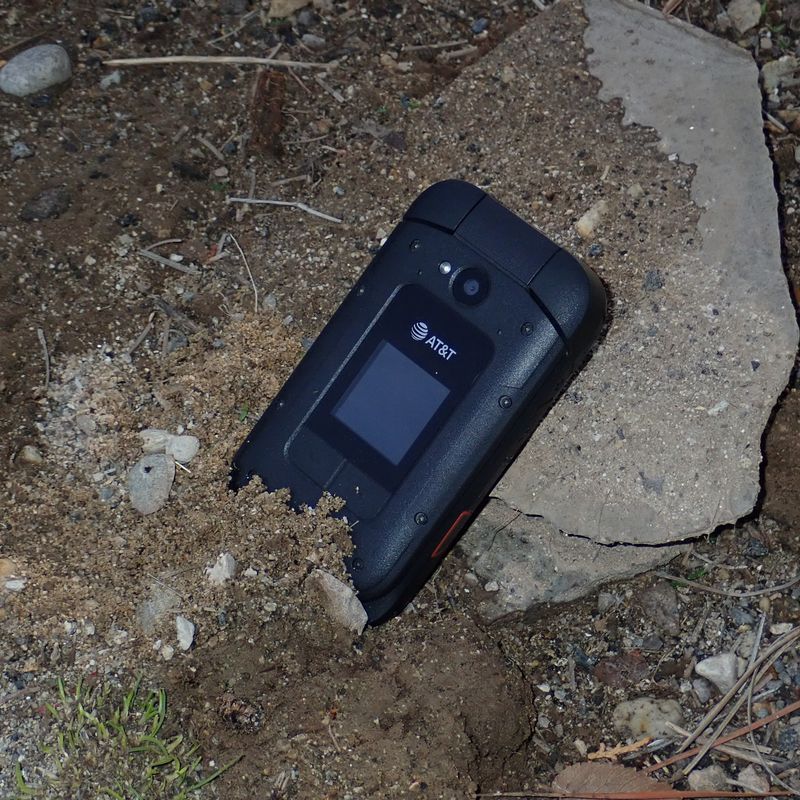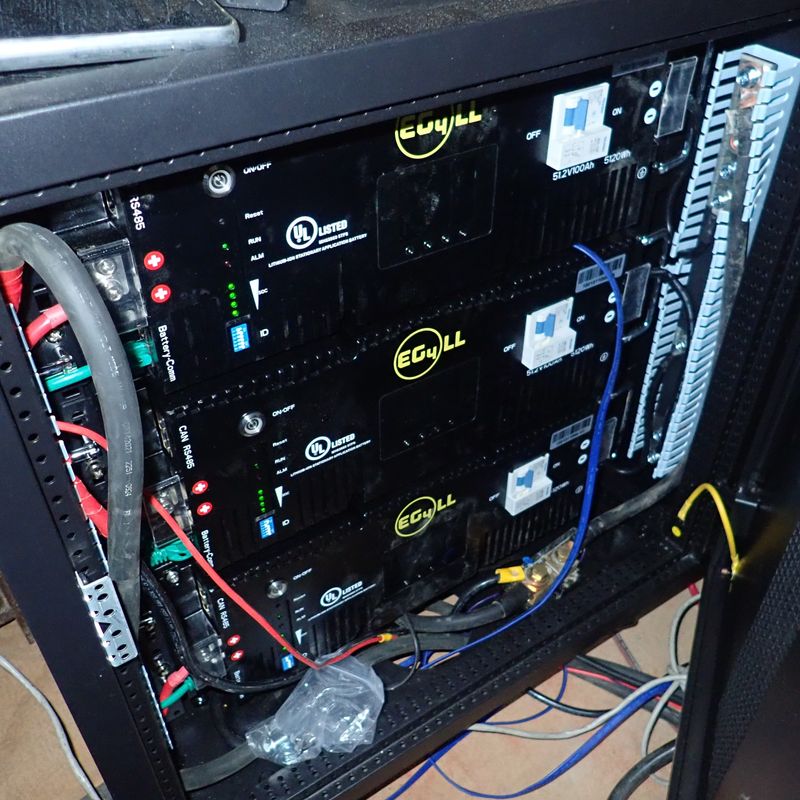Have you ever gone through the flow for deleting your Facebook account? It’s a very interesting process that can best be described as, “Customer Retention.” Or, in other words, “Please don’t go! We can change! We promise! Look, see, here’s a solution to all your objections! Think of all the friends you won’t see updates from!” And so on. Since Facebook is busy re-inventing their UI to pretend to be less toxic, let’s look at their UI for detoxifying them entirely - and what we can learn about their thinking from it.
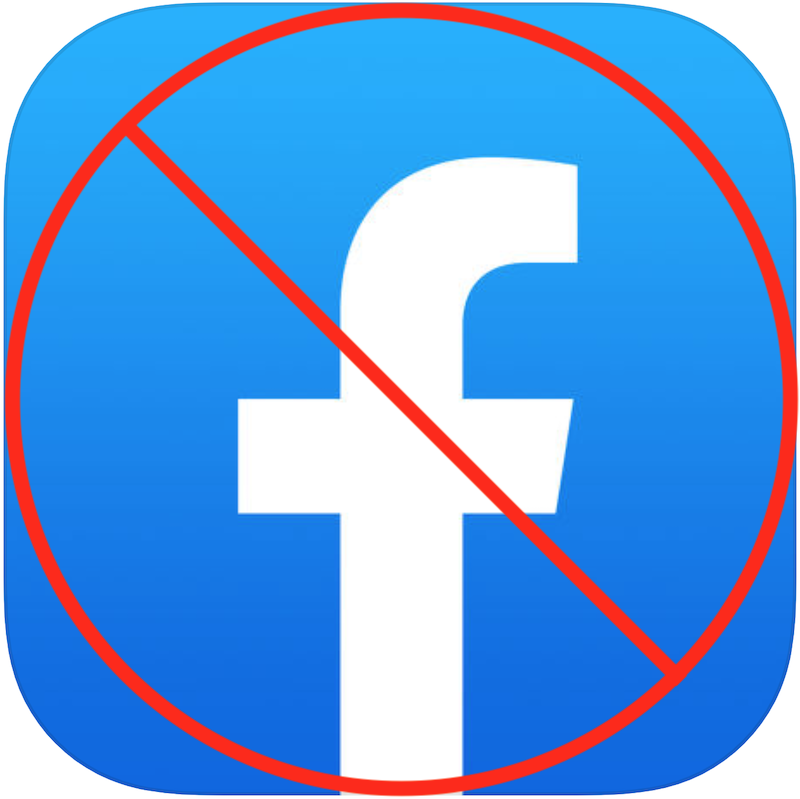
If you haven’t played with it, it’s worth messing around with! Or, you can enjoy the overview here!
Del… what? Why on Earth would you do that?
Yes, I’ve heard the arguments for Facebook. I have an account (that I check on a roughly weekly basis). Facebook clearly has some benefits. It’s great if you’re bored in line to check out and want to do a quick refresh to see what’s new and exciting (like the other social medias). It’s an ever-growing record of people you were once interacting with more regularly. You can see that someone you haven’t talked to in 10 years had a kid. And, it is genuinely useful for local event organizing. Plus, annoyingly, Facebook Messenger has pretty much killed off other good forms of communication (like AIM - though IRC still lives on), so it’s handy to have around.
What this misses - and what’s very frequently missing in this type of conversation - is the concept of cost/benefit analysis. Just because something has some benefits, in some situations, doesn’t mean it is worth using. If the costs (in attention, in mental health, in lack of paying attention to people around you) are significant, the benefits may not be worth it.
Amphetamine has been used by military pilots to stay awake on long missions. In those situations, the benefits outweigh the costs (at least by military standards). It doesn’t make amphetamine use a good idea.
If you’re still a Facebook user (trimming down my friends list recently, I was surprised how many people I know have left Facebook entirely), you probably don’t need me to list the costs in detail, because you’re aware of them (or can be, if you think a bit about your use). If you’re convinced that Facebook is full of benefits with no costs, or that the downsides don’t matter to you, well… you can probably stop reading now, because nothing else I say in this post is likely to be of interest to you.
So, what happens when you try to delete your account? Just how hard will they try to get you to stay? And what are their arguments against leaving?
Delete? Or Deactivate?
There are two options to shut down your Facebook account: Deactivation, and deletion. Deletion is what it sounds like - your content is removed (theoretically… they claim it’s eventually removed but I have my doubts), your account stops working, and, after some period of time, you can’t recover it. Facebook, helpfully, delays deletion for “a few days after it’s requested.” And cancels the deletion request if you log in again during that time. You know, because you’ll obviously change your mind. It’s Facebook! You can’t live without it. You’ll blink first. They know you will…
Deactivation is the encouraged path, which removes your profile until you reactivate it. People can’t see your profile, but you can still use Messenger (hey, AIM is dead and buried, what else ‘ya gonna use?), and it’s easy to reactivate your account. It’s actually quite easy to reactivate. “You can reactivate your Facebook account at any time by logging back into Facebook or by using your Facebook account to log in somewhere else.” Did you just log into Spotify with your Facebook account? Hey, reactivated! You really didn’t want to quit… just one more swipe!
The linked accounts thing is one reason I’m hesitant to use Facebook logins places. My primary Google account is better, though I still generate clean accounts (with unique per-site passwords - LastPass makes this easy) for almost all sites.
The Deletion Process
Once you decide to delete or deactivate your account, there’s an interesting path of “Please don’t go!” steps you have to go through. It’s a bit educational to look at, because they’re clearly focused on “retention” here - preventing you from canceling your account. I can’t fault them for this - their company is based around being the network of everyone you know, have once known, met once at a party, think you might want to get to know, etc, and people leaving hurts that. Even if they’re now a toxic destination for people.
You start out by going to settings, and then under “Your Facebook Information,” there’s an option to delete your account. This gets you into the delete pipeline, where they do their best to encourage you to stay.
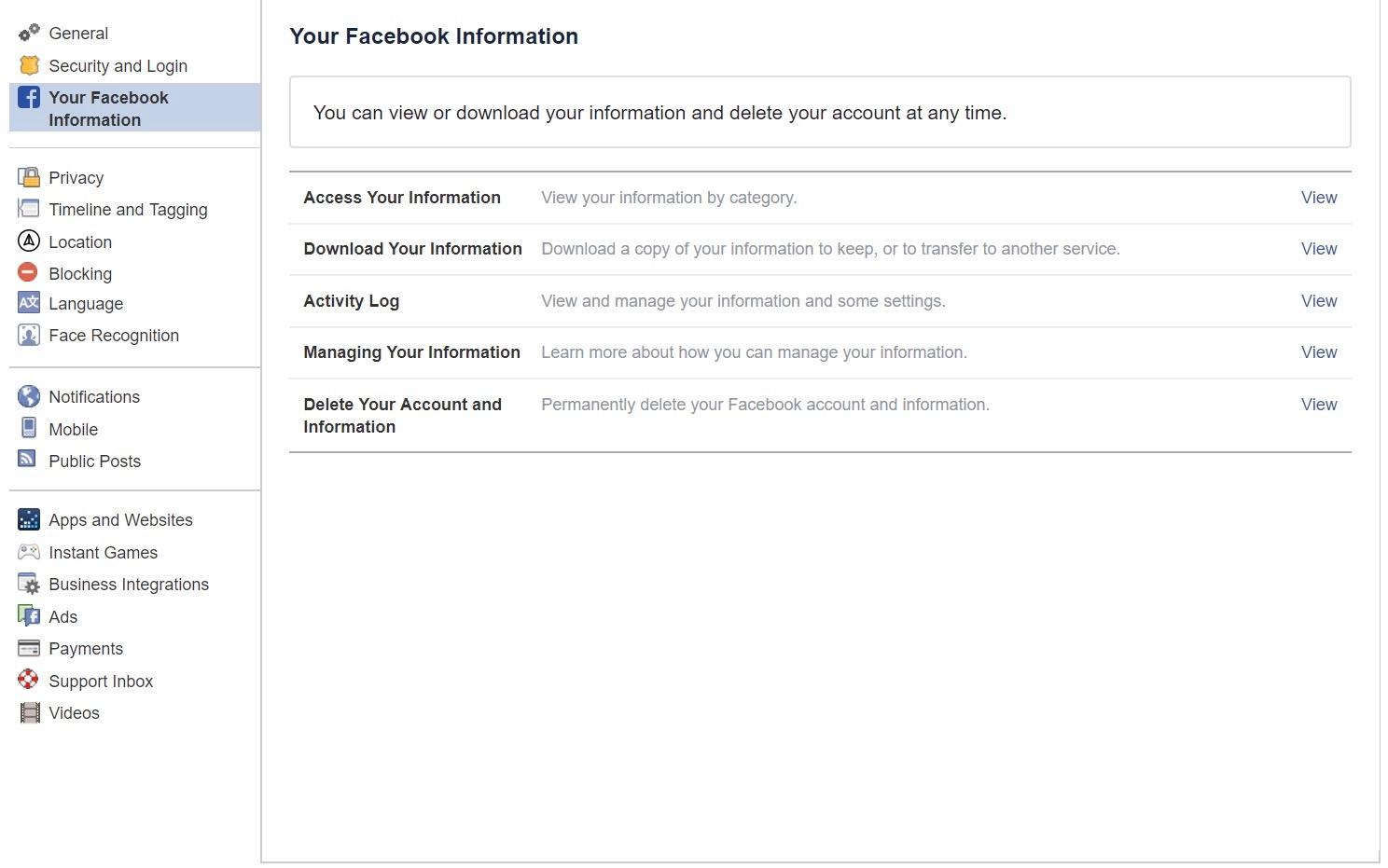
The next screen invites you to consider deactivating your account instead of deleting it (you can keep Facebook Messenger, and it’s trivial to re-activate it inadvertently, so… you’ll be back), and they encourage you to “download your information” before you go. I doubt too many people do this, but it’s worth noting that they shove metrics in here. “Look at all the valuable things you’ve posted to Facebook over the years, you don’t want to lose all those important things, do you?” I assume all of this stuff has been A/B tested on billions of users (since Facebook A/B tests everything), so they know it’s more effective.
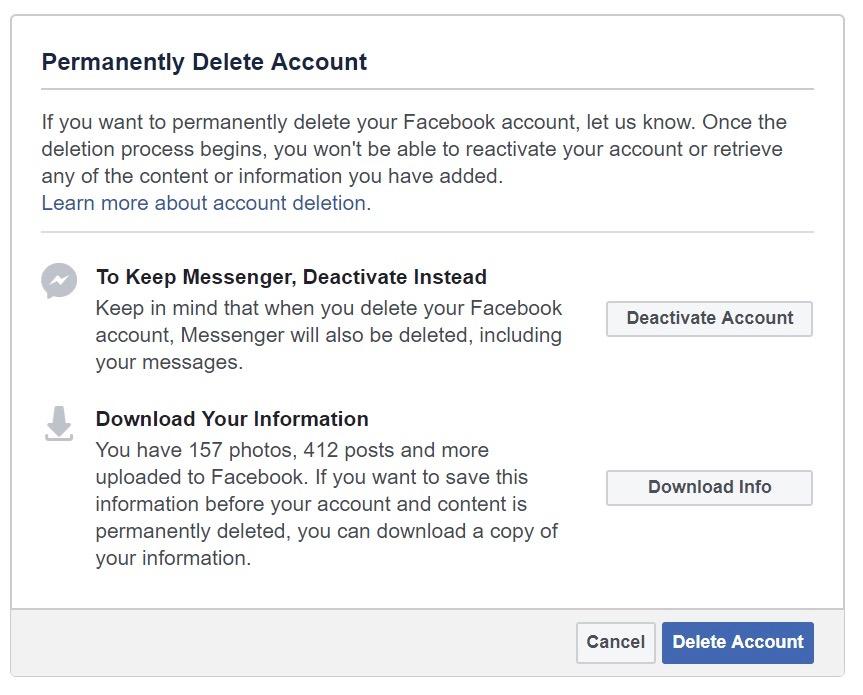
“Why are you leaving me? Please don’t go! I’ll change! I swear!”
There’s one valid reason to delete your Facebook account - that you have another Facebook account. Everything else leads to “But, wait, you don’t have to leave for that! Look, you can fix the problem!” popups that try to convince you to stay.
Of course, the guilt trip continues. You get a selection of photos of people you won’t be able to keep in touch with on Facebook (which, of course, is the preferred method to contact people - why talk in person or text when you could use Facebook?), more metrics, and then a list of reasons you might want to leave.
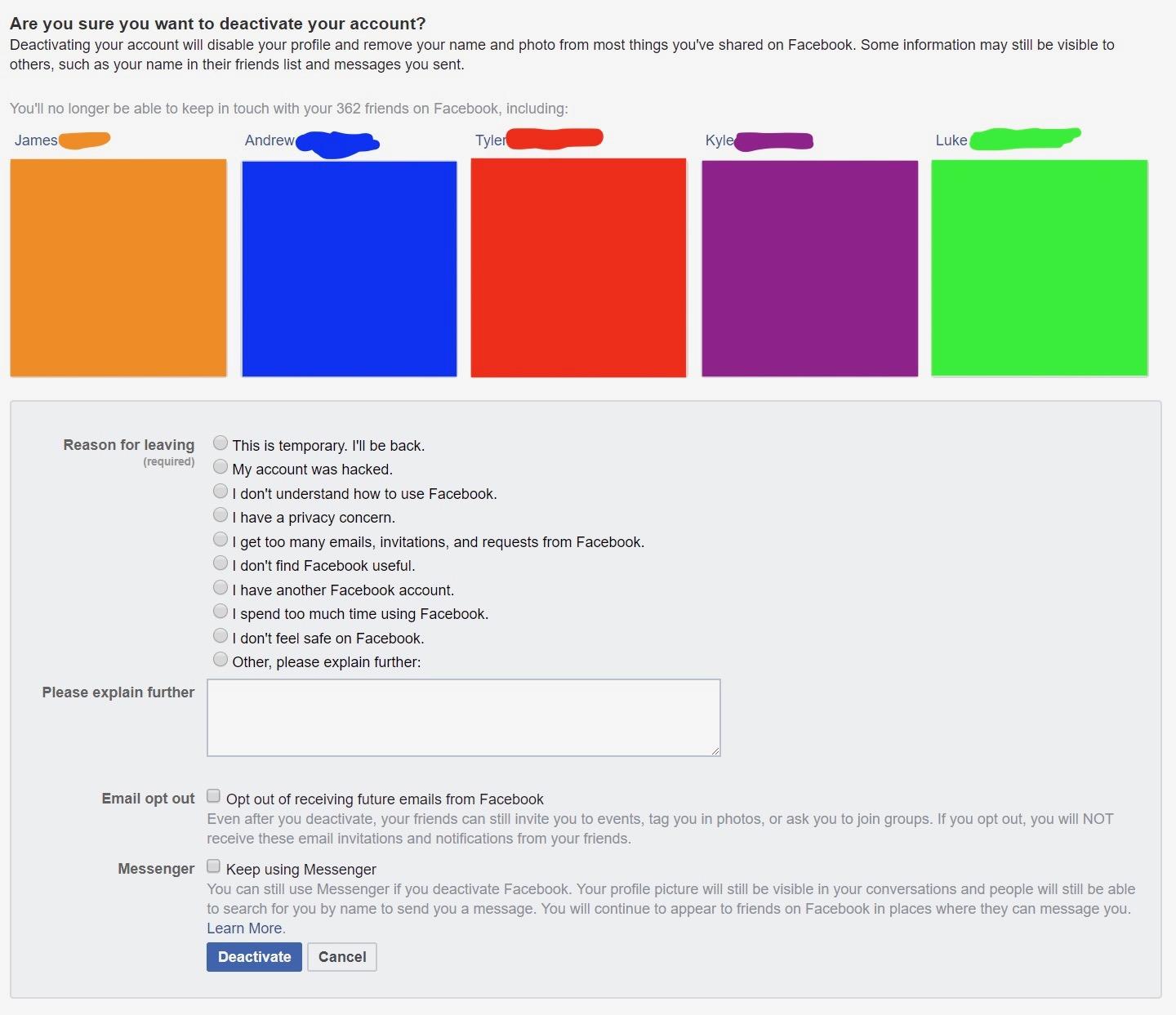
And, now, the reasons - and their responses - for why you might want to leave.
“This is temporary. I’ll be back.”
“Wait! You don’t have to go to extremes! Just log out! That way, you can just come back and we’ll have plenty of nonsense to give you a really, really big number on the bell icon when you come back so you’ll see just how much you’ve missed. If you deactivate, why, nobody could interact with you while you’re gone!” There’s also the question of Facebook tracking which pages you visit. Those little “share on Facebook!” squares also happen to tell Facebook exactly who you are (because the icon comes from their servers), and the referrer ID tells them which page you’re on. If this bothers you (it probably should), might I suggest Ghostery or a related tracker blocker extension? I don’t know if they’re still active when the account is deactivated (I bet they are), but they’re certainly active if you just log out.
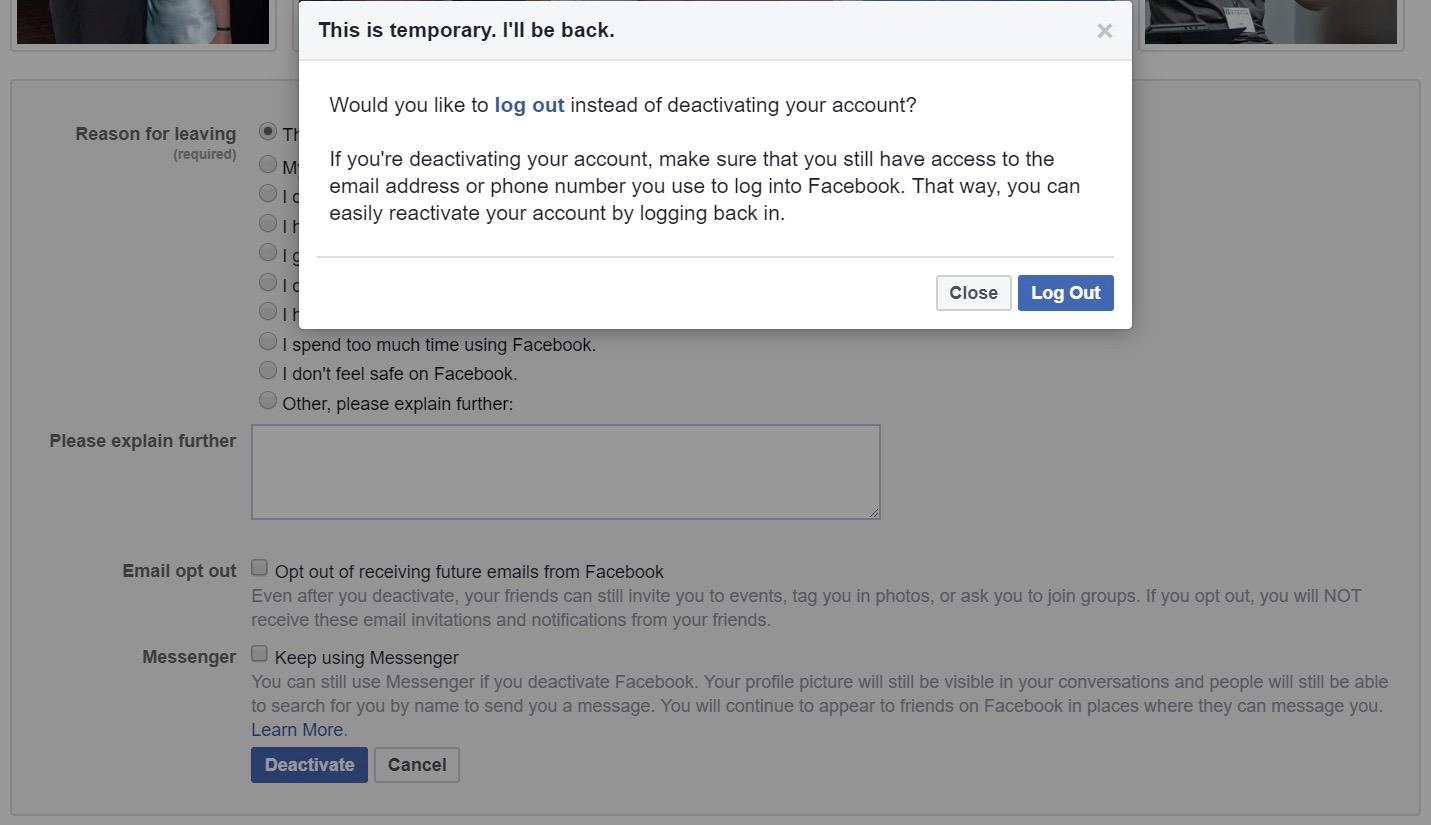
Oh, and just to make sure this really is “temporary,” you get to select how many days later to reactivate your account. “You said temporary, we’ll make sure you mean temporary!” Notice that this option only appears when you select it, and the maximum possible length you can select is a week.
Imagine a relationship “I need space, we should take a break…” conversation going this way. It’d be pretty creepy. “Ok, great! Time is great! So… are we a thing again on Tuesday? Or on Saturday?”
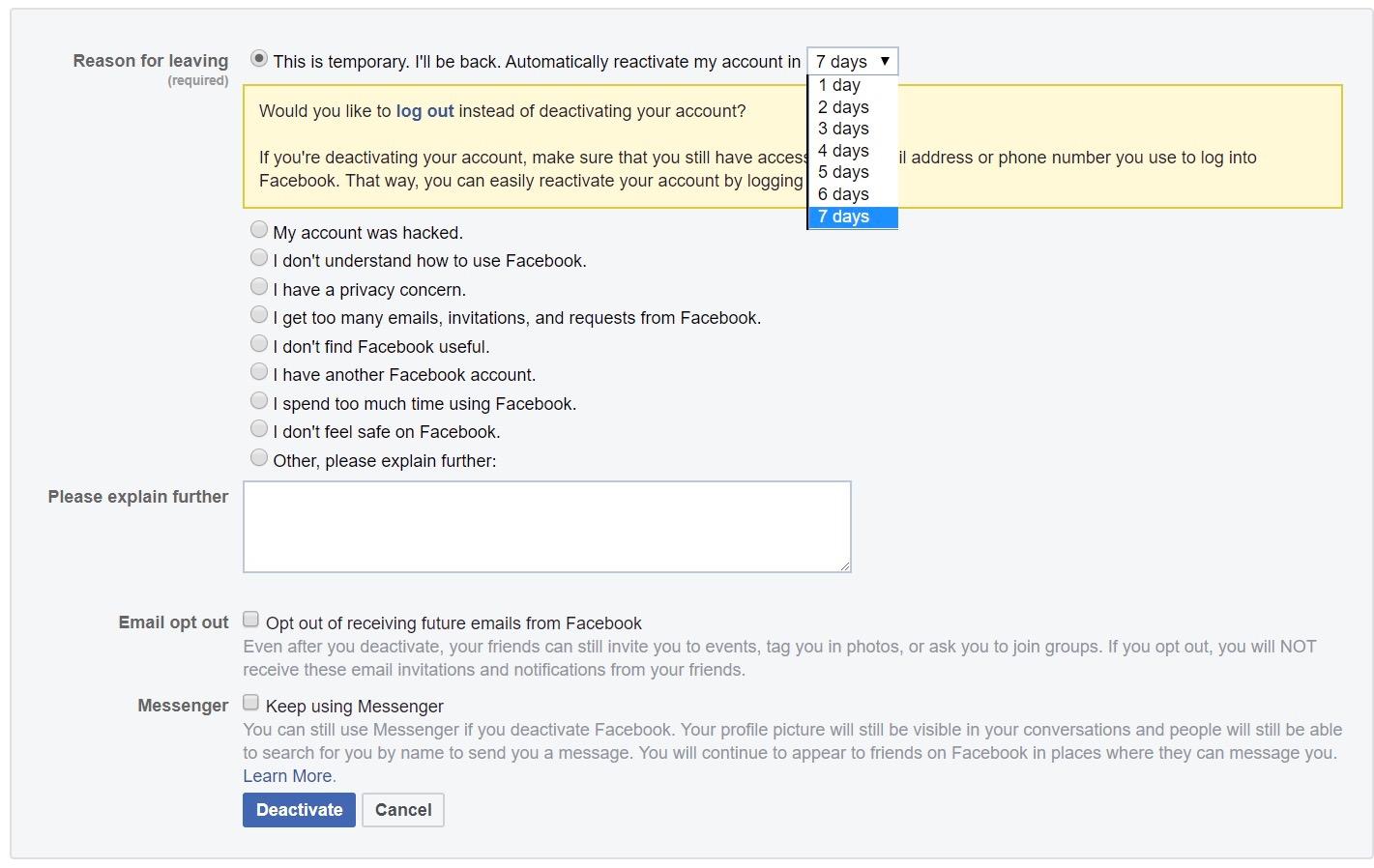
“My account was hacked.”
“Well, that’s no problem at all! Come, secure your account so it won’t be hacked again. It’s not like we left a couple hundred million plaintext passwords on our servers for years. We can help you secure your account! Seriously, that’s a stupid reason. Just change your password and add your phone number (totally for security, you understand, definitely not so we can match you with other people who have uploaded their contacts), you don’t need to leave over this.”
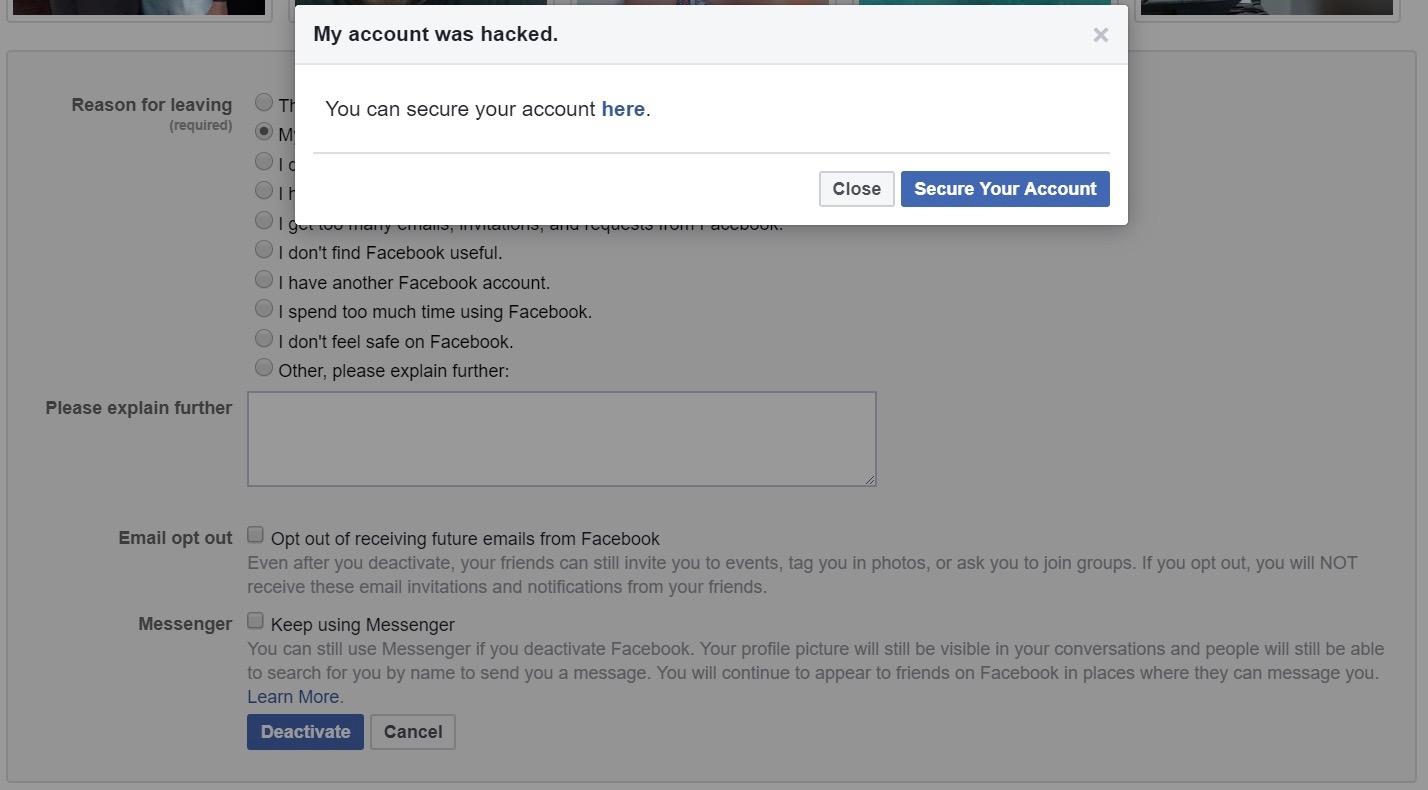
“I don’t understand how to use Facebook.”
This is one of the more absurd reasons, actually. Facebook is user-toxic in many ways, but it’s genuinely user friendly in use, and frighteningly good about suggesting people you know (even if there’s no discernible way you can figure out how they know you know them). If you don’t understand how to use Facebook, I doubt you’d find yourself to this screen anyway.
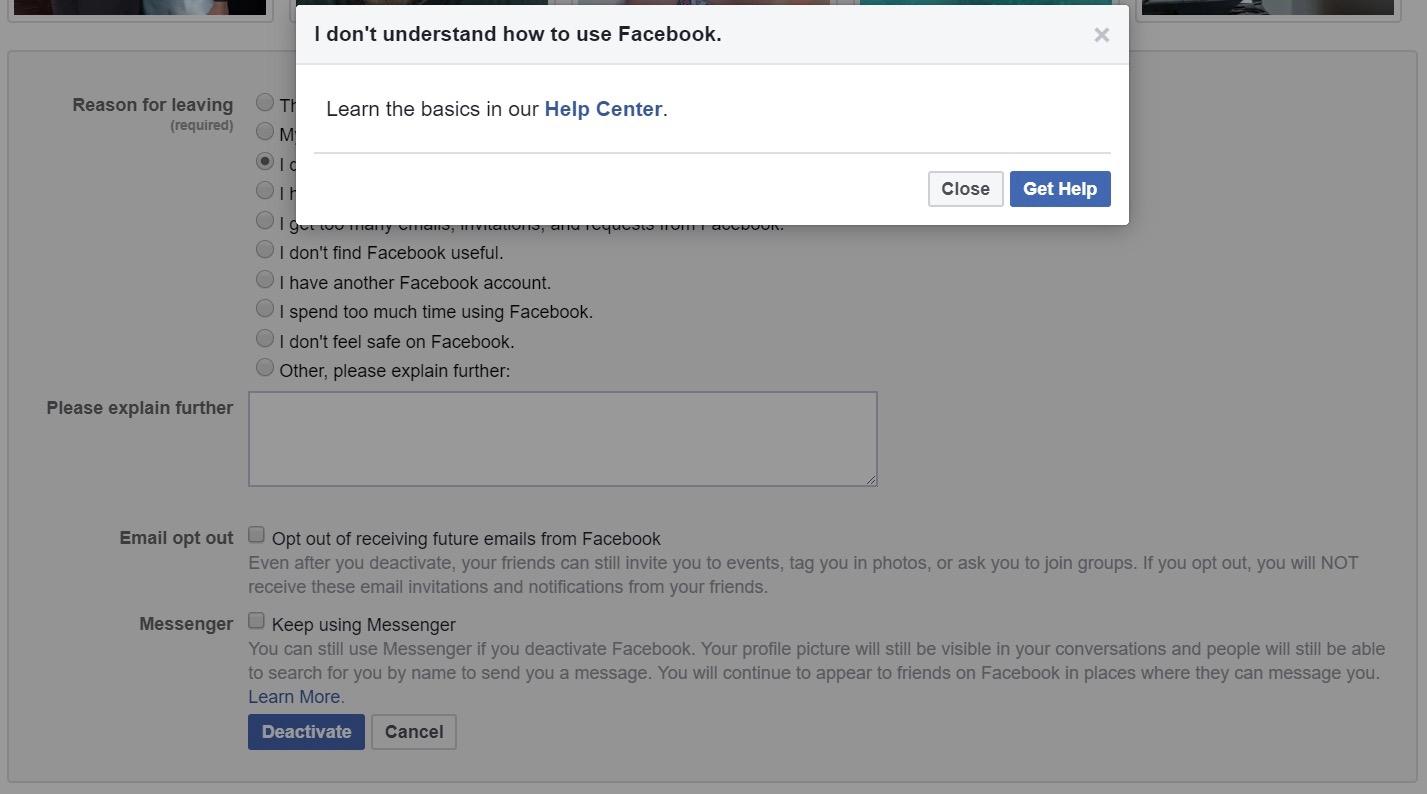
“I have a privacy concern.”
“Just mark your posts private, or friends only. That totally solves it.”
It couldn’t be that someone was unhappy with being packaged and commoditized up into little slices of group to sell ads to, and that the company has taken a piss poor approach to privacy over the years, mostly involving encouraging you to share as much as possible without thinking of the consequences. Besides, if you wouldn’t do it, that one guy who takes photos of everyone against their will and tags everyone in them is a useful enough alternative.
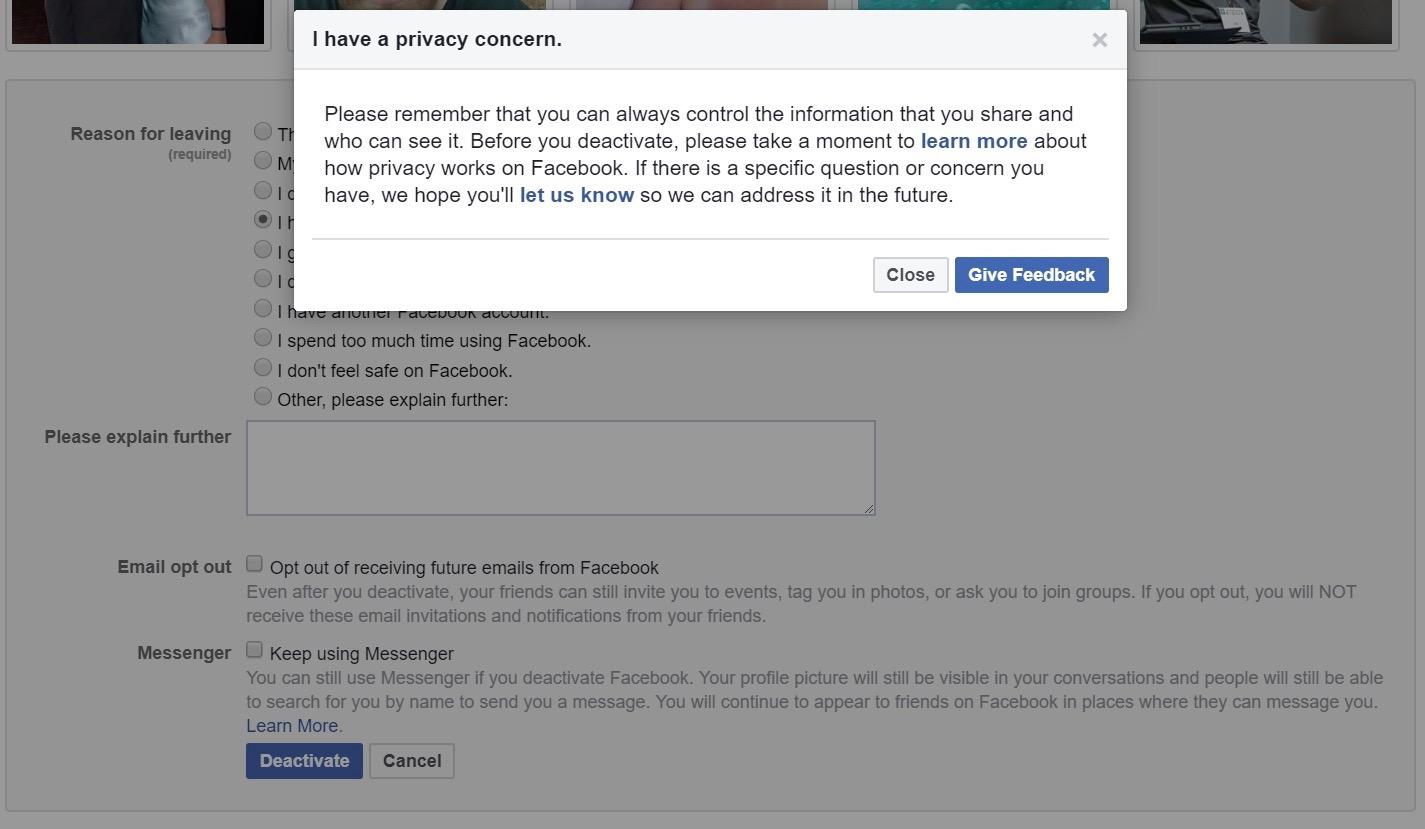
As usual, there’s a relevant xkcd.
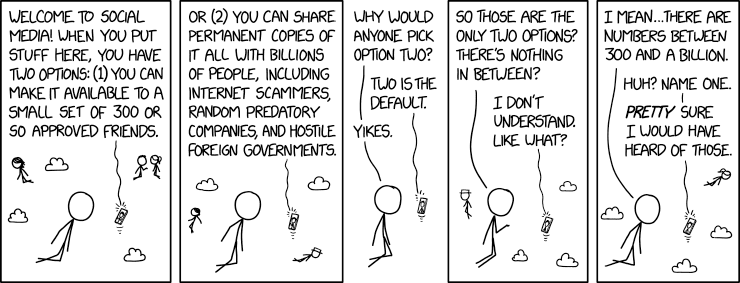
“I get too many emails, invitations, and requests from Facebook.”
A lot of people don’t realize just how needy Facebook gets if you don’t log in often enough. If you check it regularly (especially with the app), you’ll never get an email. Why would you? They’ve got you via notifications or habit. If you stop checking, though… look out.
Your inbox will rapidly fill up with emails designed to make you come back. They’re desperate. Needy. Clingy. Exciting. Deceptive (they use preview text to show the first few words of the post they reference so it looks like you’ll see the content instead of just a button to go see it on the website, while not having any of the content in the actual email when you click it). Just come back!
Then they have the balls to say that you can control what email you receive. You can’t - not for any practical value of “control.”
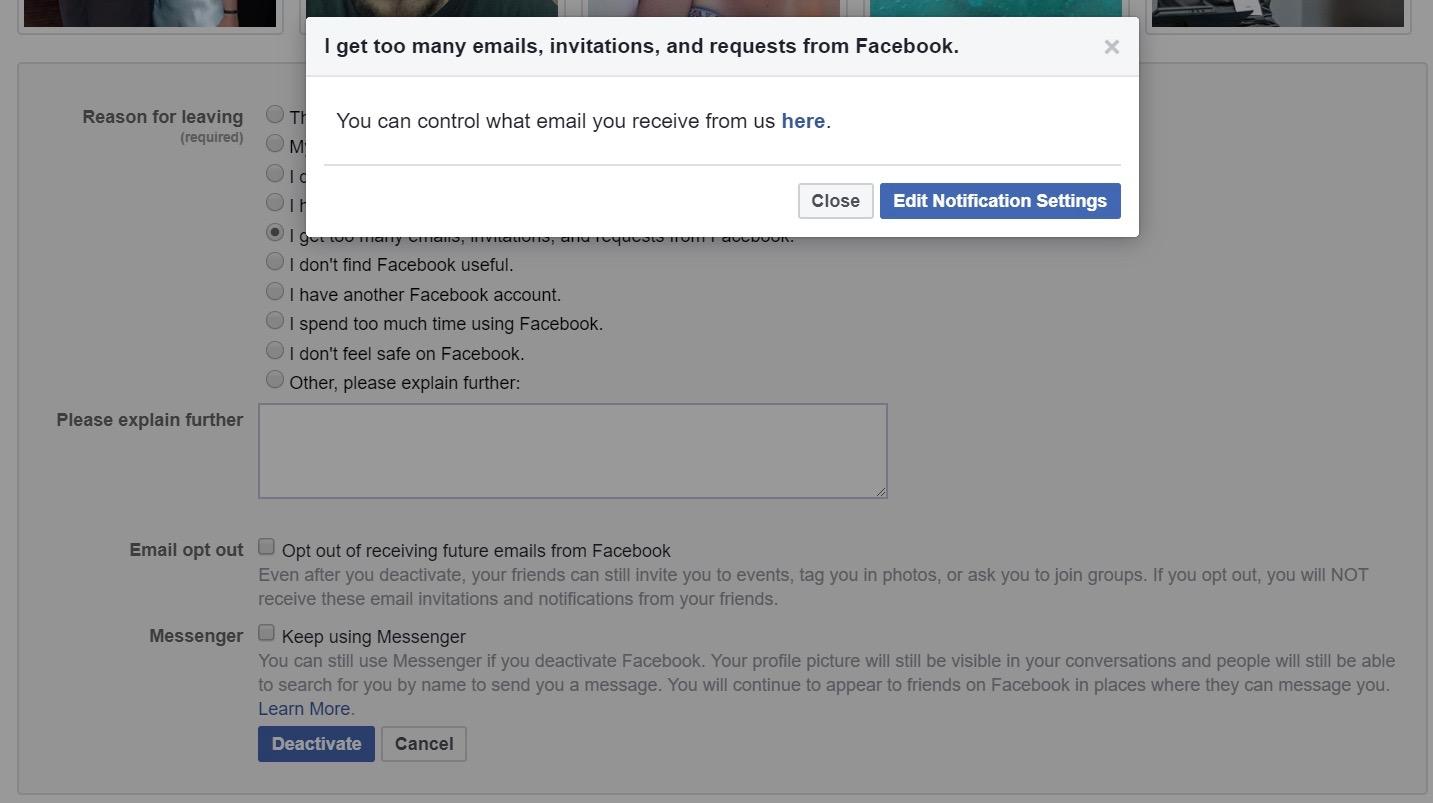
I don’t know if you’ve ever tried to tamp down Facebook email volume. It’s pretty much impossible. You can use the big hammer approach, but at no point can you see a list of the type of emails they’ll send and select which ones you want. You have to wait until you receive an email of a certain type, then you can unsubscribe from that particular type of email - but not any others. It’s deliberately designed to make it as difficult as possible to pick and choose what email you receive.
I mean, look at some of the categories I unsubscribed from before I gave up and turned the big switch off.
“Oh… well, you said you didn’t want to receive statuses from your friends, but you didn’t say anything about things your friends shared!”
“Well, you didn’t want to receive new status or shares, but you still clearly want updates on your friends, right?”
It’s absurd, and goes down the rabbit hole. I’d love to see a complete list of notification types they’ll spam with, so I can see just how finely sliced they’ve made it to ensure that you’ll still get some emails.
“Well, you’ve turned off a lot, but you didn’t turn off notifications of comments that friends of a friend made on a friend’s post who you haven’t interacted with in more than three months!”
Years ago, you could select which types of email you wanted to receive - just like just about any other site that offers email. “I want to see this, don’t care about this, etc.” Facebook changed it to just make it harder, for “engagement” or whatever metric they were optimizing for that week.
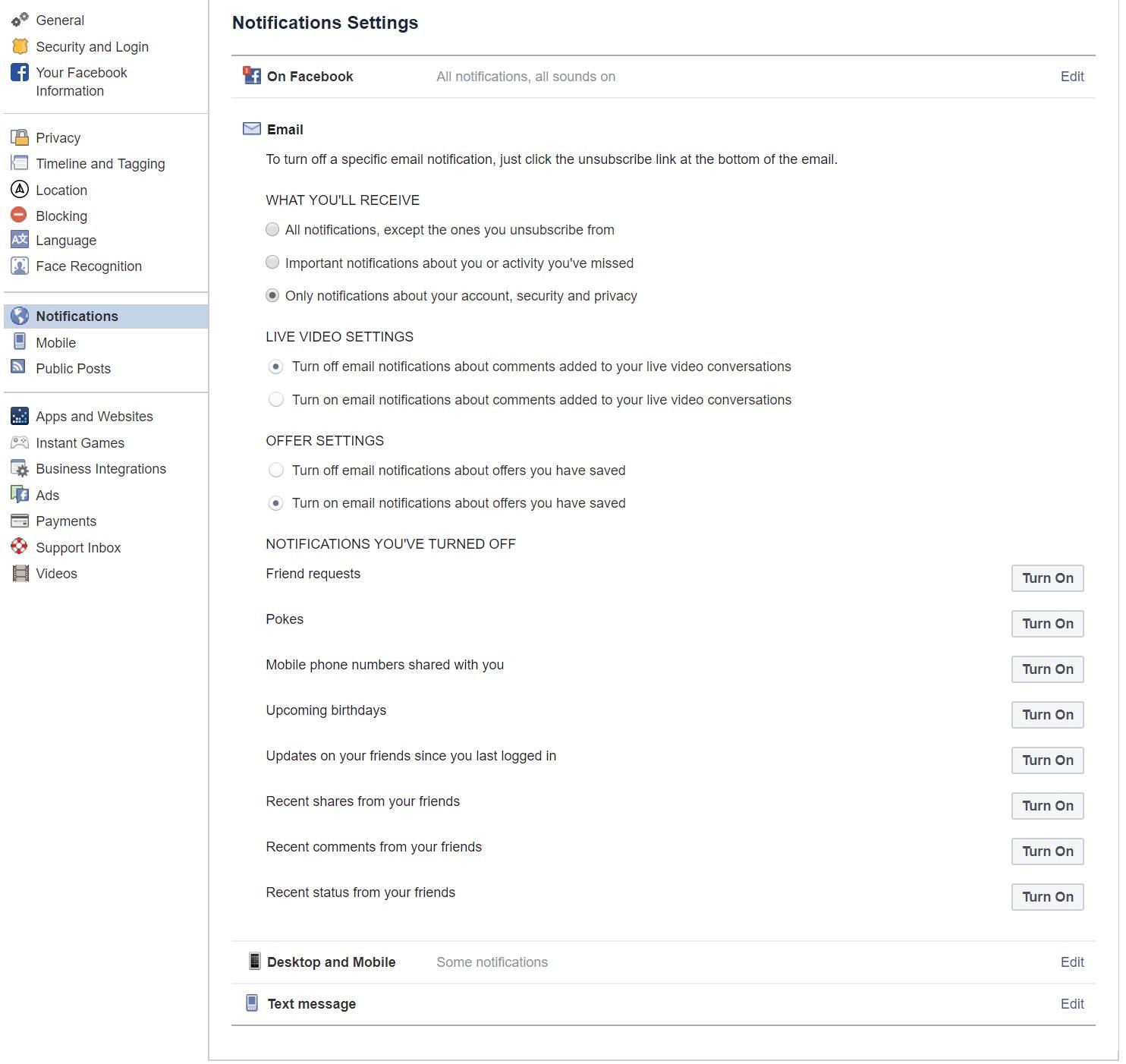
“I don’t find Facebook useful.”
“Unpossible. Facebook is the most usefully useful thing ever to be on the usefulnet. You just don’t have enough friends. If you had a bunch of people you knew connected to you, why, Facebook would be super useful.”
“I mean, just think! You could get to know what that person you sort of knew back in high school, that you literally haven’t talked to in decades, is doing! That’s definitely useful. Stalk your old classmates. Is she still hot? Did she marry a loser? Is the high school nerd now rich and famous? You could find out, and that would clearly be super usefully useful!”
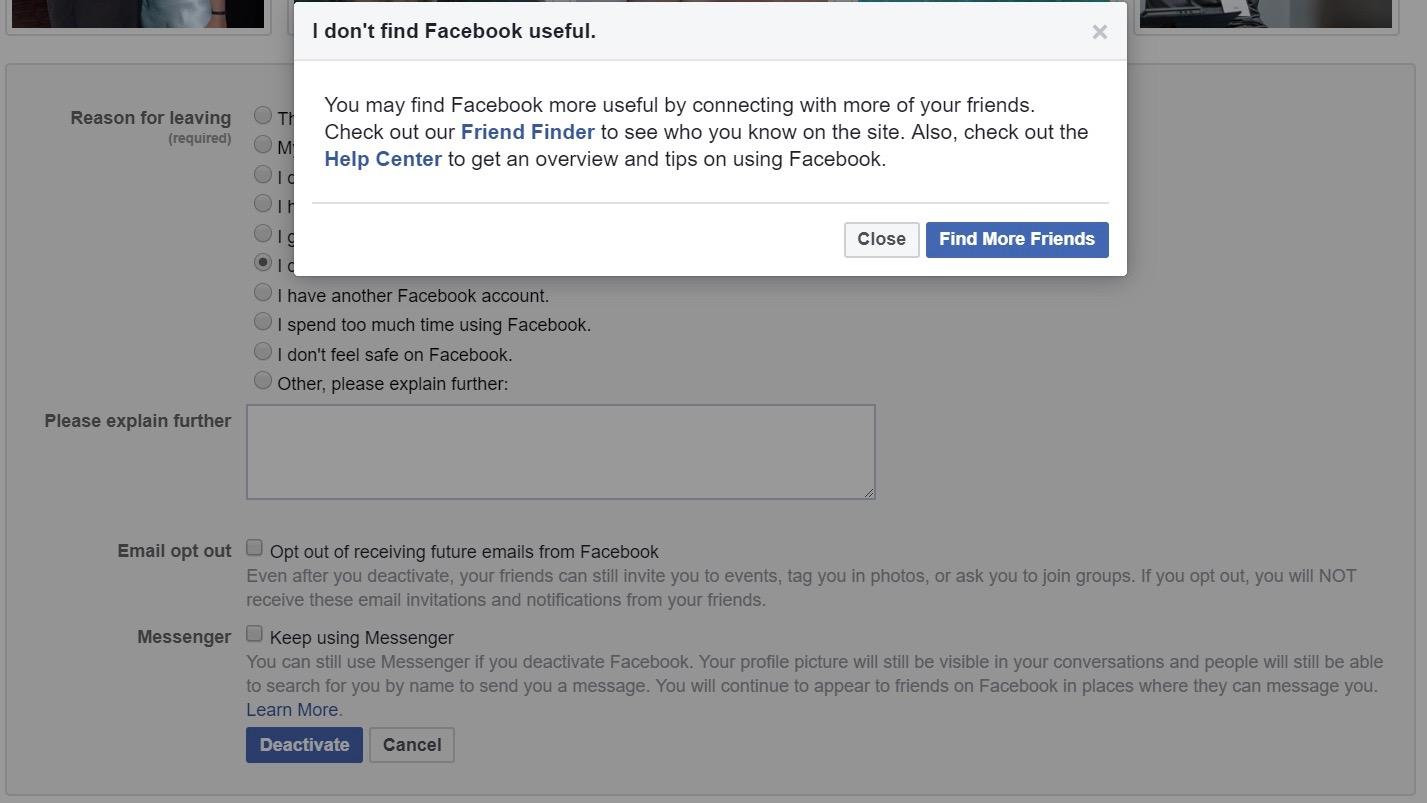
“I have another Facebook account.”
“Thank you for being honest, you dishonest scammer. Get rid of this one and use your proper one so we can tie everything back to your real identity.”
This is the only option that doesn’t have a popup - meaning it’s the only option they think is a legitimate reason to delete an account without trying to convince you to stay.
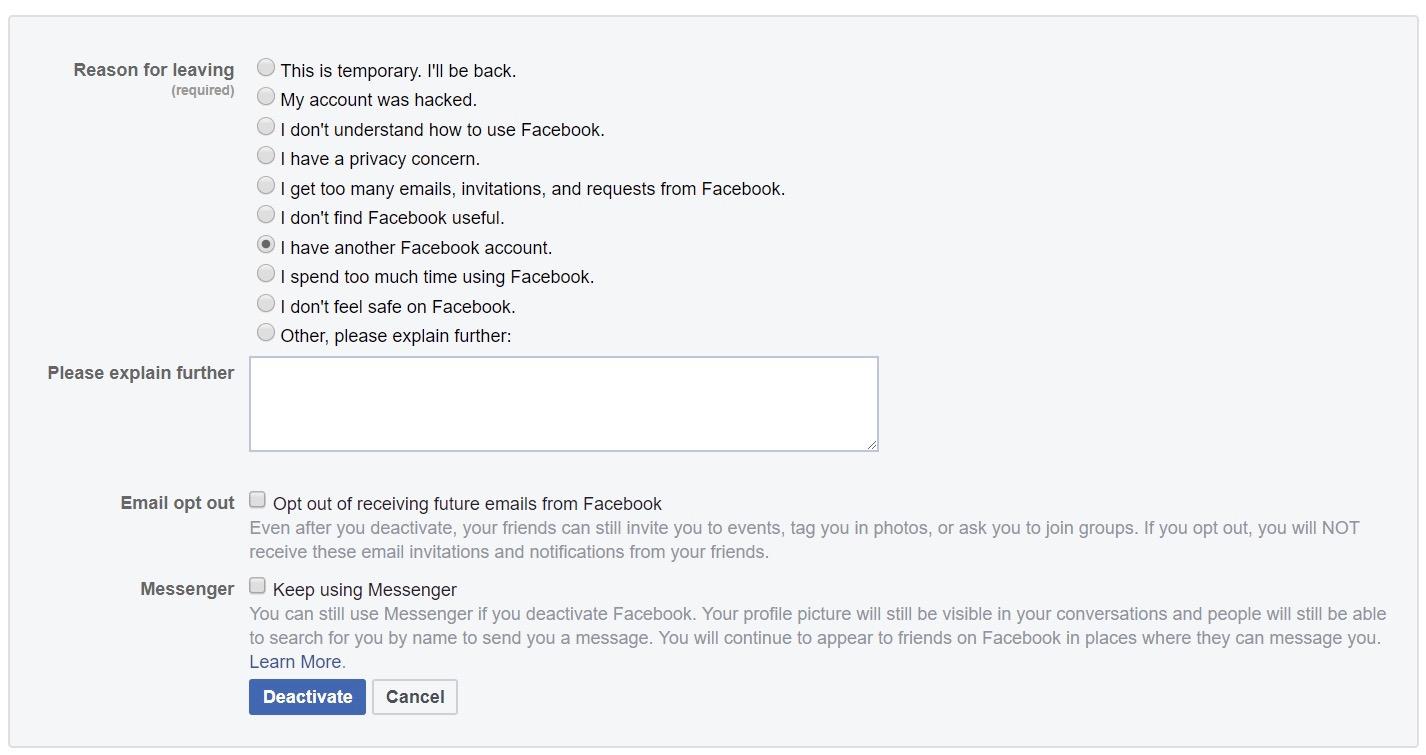
“I spend too much time using Facebook.”
“Ah, well, this is definitely all your fault, and not because we’ve applied weaponized psychology to keeping you on the site, adding random notification rewards, randomizing your feed so every pull is like a slot machine, and the various other things we’ve done to make you come back. In any case, you can turn down emails or notifications and that should solve the problem! It’s not like you’ve got a habit we’ve engrained over time that will keep you coming back… oh, wait, lol.”
Really. Emails? That’s their solution? When almost everything is done via the app and notifications?
See my previous comments on emails and how hard adjusting the settings to be useful is.
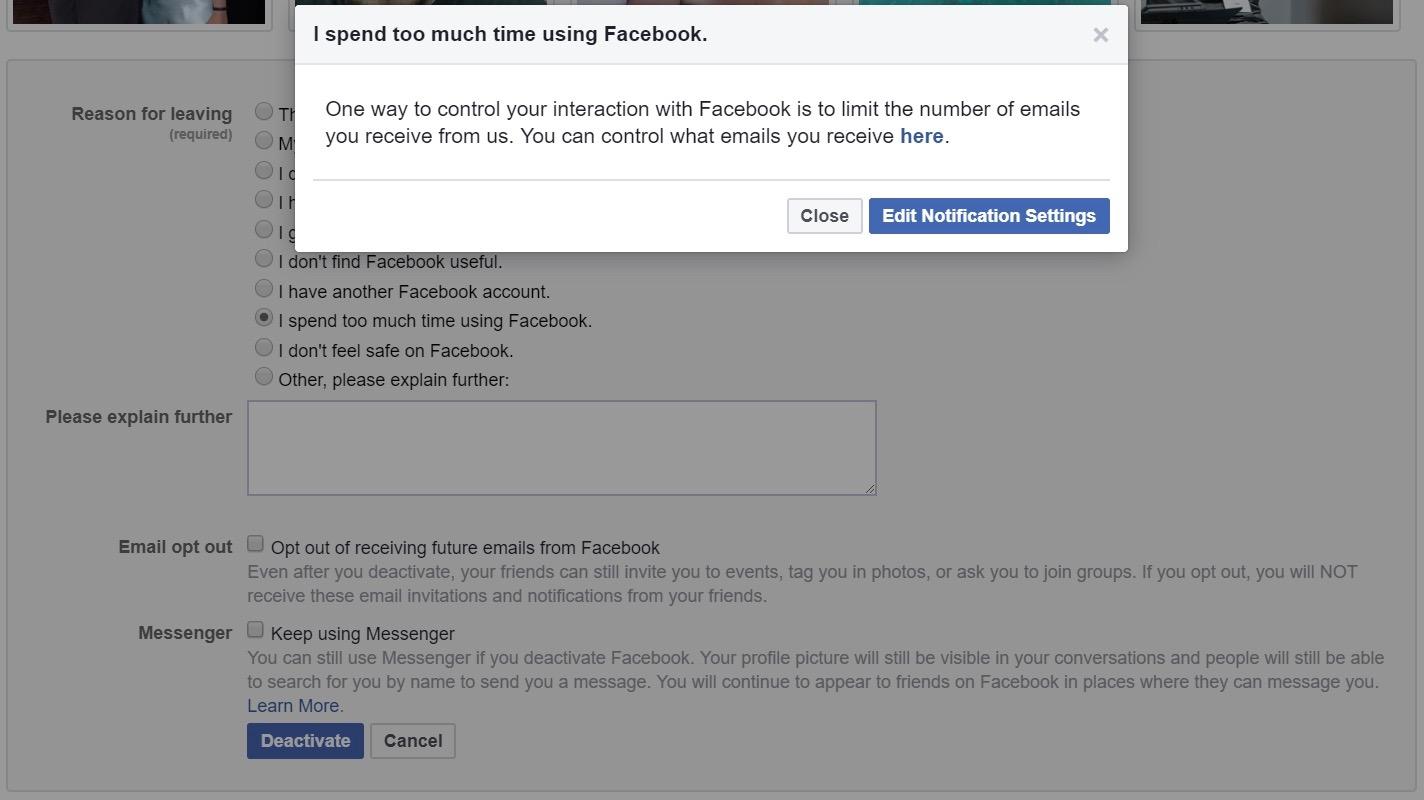
“I don’t feel safe on Facebook.”
“Of course you do. It’s just that one person you can block. Or, uh, file a report, for whatever good that’s likely to do… if it makes you feel better, though, we can definitely give you a button to click that’ll make you feel like you did something.”
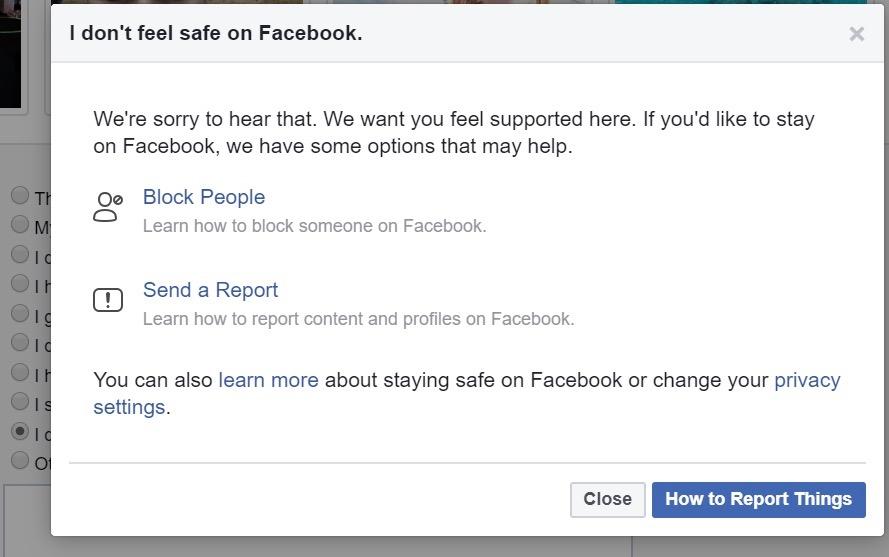
So, Guilt Tripped into Staying Yet?
Because, if you’re not, they’ll just keep showing you what you’ll miss out on until you are!
I haven’t actually deleted my Facebook account. It’s useful enough to keep around for scheduling things with groups of people (or, rather, being scheduled). But I don’t use it in the way Facebook wants me to. I use it on one computer (not a primary computer), desktop only, and I’ve massively cut my friends list. There’s a useful metric you can use: “Can you recall the last time you saw or talked to this person outside commenting on a Facebook post?” Even Messenger counts, if you have it installed. But that person you went to high school with who you sort of knew, after 15 years of not having talked to them? Probably not worth keeping around.
If you use some sort of ad blocker or tracking blocker as well (mentioned earlier - I use Ghostery) and block Facebook gadgets on pages, they can’t collect much information on you. Check it on a desktop every week or so, and it’s somewhat useful without the mental costs of having it on your phone. The costs of desktop use are far lower than the costs of mobile use.
Plus, if you stop using it as much, you’ll probably find yourself happier.
Sorry, Facebook. You’re just not important enough to devote that much mental effort to.
Modern Technology Has Become Human-Toxic
I’ve written before about why I consider smartphones predatory in their default use cases. I’ve aggressively made my phone less exciting and less tempting to whip out. Right now, I don’t even have a browser enabled on it, and it mostly lives in greyscale. I have zero social media apps, and I’m pretty happy with what this has done to my phone use (and to my battery life). I use it for things it’s good at (maps, as a viewscreen for my drone, Hangouts, email), and I try to avoid using it for the more addictive things. Benefits, without the massive costs. I’m even more productive around the property if my phone isn’t on me - I’m not available for texts, and I’m less tempted to take random photos of progress for updates.
The goal of almost every modern website (and their apps) is to keep your attention at all costs. Making you jumpy and unable to concentrate? No problem. Screwing up your relationships with other humans? Awesome, you’ll use “social” more. Keeping you awake at night? Hey, more eyeball time. It goes on and on - and the costs to your life are increasing.
I remain optimistic that we’re past peak smartphone (and, since all social media is now phone-based, peak social media). Cell phone sales are stagnant. More and more people are quitting (or radically reducing) various social media accounts. And, if you talk about the downsides of it, you’re not treated as a loon anymore. The responses (at least in my circles) are more along the lines of “Yeah… you’ve got a point, I’m just not sure I’m ready to quit them…”
My recent experiments in using the internet more as a pull-based research tool (instead of the default push-based entertainment trap) have been quite interesting. It turns out, it still works fine that way, and it’s a whole lot less distracting! My productivity in other parts of my life is up, and I find myself caring about the internet a whole lot less these days. It’s a welcome change!
Try it… you might like it!
… and, no, I still don’t have solar updates. I cannot manage to get my plans past plans review. It’s not the technical aspects, it’s communicating those properly, in the desired (totally undocumented) format they’re used to. Any solar plans reviewers want to review my stuff for communicating NEC-correctness? The contact form is on the right.
Comments
Comments are handled on my Discourse forum - you'll need to create an account there to post comments.If you've found this post useful, insightful, or informative, why not support me on Ko-fi? And if you'd like to be notified of new posts (I post every two weeks), you can follow my blog via email! Of course, if you like RSS, I support that too.

